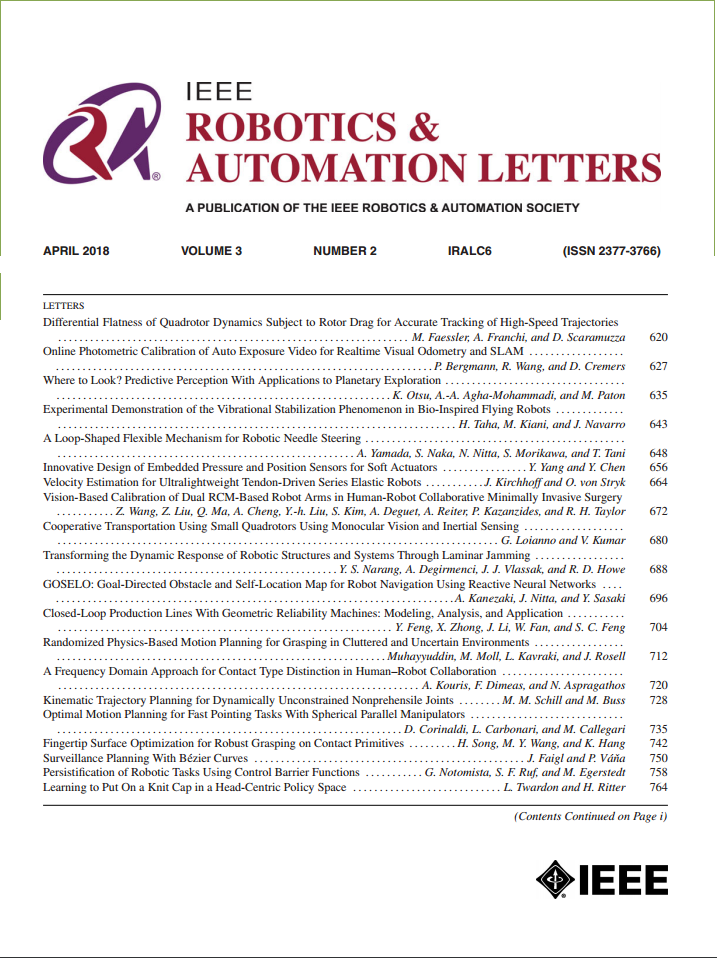基于滚动可微约束和几何约束的多指操作轨迹优化
IF 4.6
2区 计算机科学
Q2 ROBOTICS
引用次数: 0
摘要
以可微的方式参数化手指滚动和手指与物体的接触是将灵巧操作表述为轨迹优化问题的重要内容。以前的方法通常假设机器人和物体的几何形状简化,或者没有明确地模拟手指滚动,与此相反,我们提出了一种通过考虑机器人和物体的非平凡几何形状来进一步扩展灵巧操作能力的方法。通过将目标的签名距离场(SDF)与采样方法进行积分,我们的方法以一种可微的方式估计接触和滚动相关变量,并将这些变量包含在轨迹优化框架中。这个公式自然允许手指滚动行为的出现,使机器人能够局部调整接触点。为了评估我们的方法,我们引入了一个具有挑战性的多手指灵巧操作任务的基准,例如螺丝刀转动和手的重新定向。我们的方法在实现期望的对象配置和避免丢弃对象方面优于基线。我们还成功地将我们的方法应用于现实世界的螺丝刀转动任务和长方体对准任务,证明了它对sim2real间隙的鲁棒性。本文章由计算机程序翻译,如有差异,请以英文原文为准。
Multi-Finger Manipulation via Trajectory Optimization With Differentiable Rolling and Geometric Constraints
Parameterizing finger rolling and finger-object contacts in a differentiable manner is important for formulating dexterous manipulation as a trajectory optimization problem. In contrast to previous methods which often assume simplified geometries of the robot and object or do not explicitly model finger rolling, we propose a method to further extend the capabilities of dexterous manipulation by accounting for non-trivial geometries of both the robot and the object. By integrating the object's Signed Distance Field (SDF) with a sampling method, our method estimates contact and rolling-related variables in a differentiable manner and includes those in a trajectory optimization framework. This formulation naturally allows for the emergence of finger-rolling behaviors, enabling the robot to locally adjust the contact points. To evaluate our method, we introduce a benchmark featuring challenging multi-finger dexterous manipulation tasks, such as screwdriver turning and in-hand reorientation. Our method outperforms baselines in terms of achieving desired object configurations and avoiding dropping the object. We also successfully apply our method to a real-world screwdriver turning task and a cuboid alignment task, demonstrating its robustness to the sim2real gap.
求助全文
通过发布文献求助,成功后即可免费获取论文全文。
去求助
来源期刊

IEEE Robotics and Automation Letters
Computer Science-Computer Science Applications
CiteScore
9.60
自引率
15.40%
发文量
1428
期刊介绍:
The scope of this journal is to publish peer-reviewed articles that provide a timely and concise account of innovative research ideas and application results, reporting significant theoretical findings and application case studies in areas of robotics and automation.
 求助内容:
求助内容: 应助结果提醒方式:
应助结果提醒方式:


